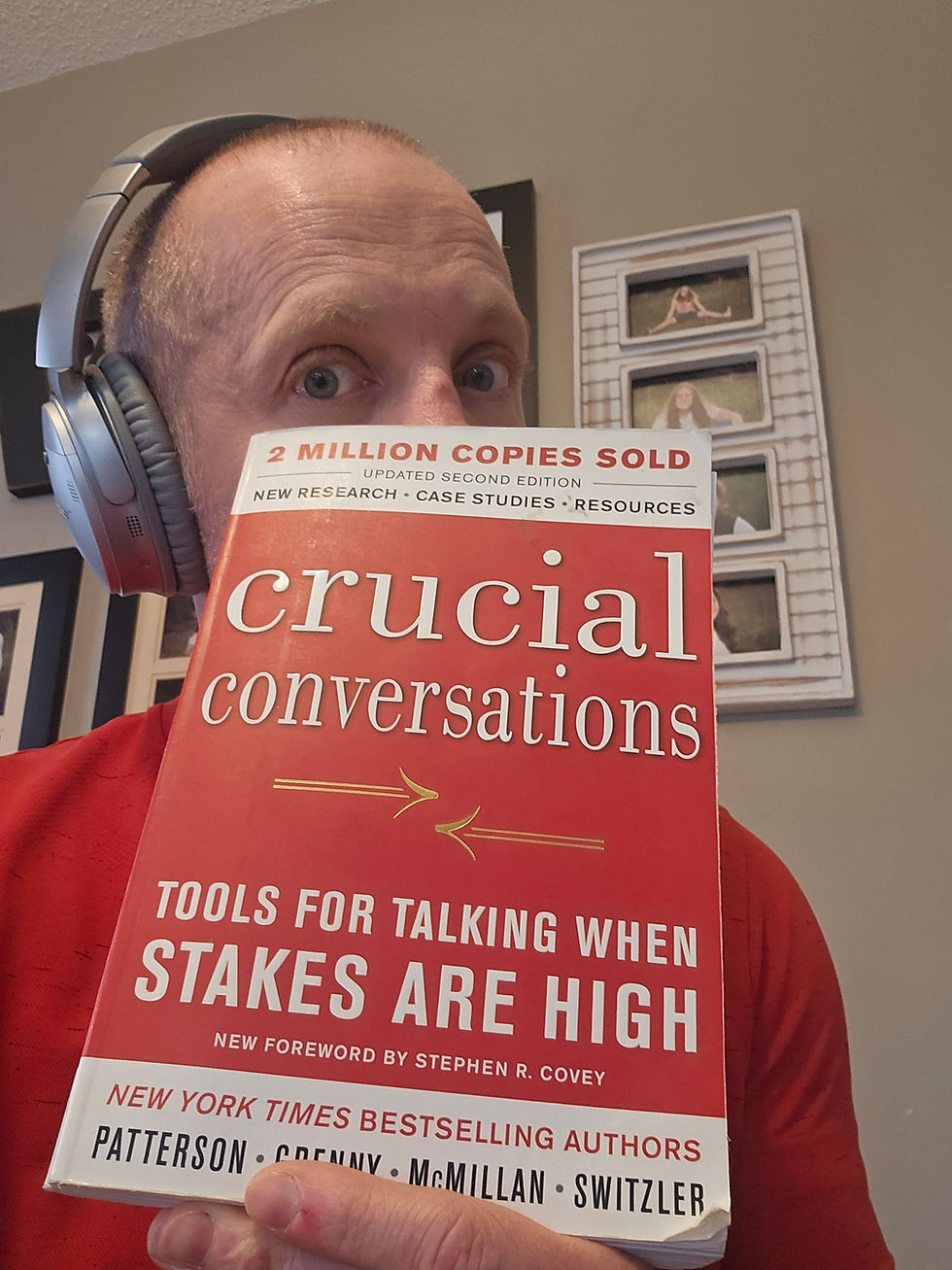
I just finished reading “Crucial Conversations” by a bunch of authors.
Quick Take: Extremely helpful read on how to improve our ability to have difficult conversations.
Longer Take:
I read this book with our leadership team at work. I enjoyed it so much that Marty and I also read it together. It has a business slant to it, but all of the principles are easily applied to all our relationships.
“Crucial Conversations” is based on the premise that “… the root cause of many – if not most – human problems lies in how people behave when others disagree with them about high stakes emotional issues.” (i.e. crucial conversations). And if we could make even minor improvements in our ability to effectively talk during these high-stakes conversations, our relationships would be greatly improved.
When I read this at work I was a little bitter about being “forced” to read something. But as I got into it, I found myself filling the margins with notes related to my marriage. I could see the dialogue mistakes discussed in the book being played out in real-time in my marriage. I was excited to see potential solutions to the countless mistakes I had made over the past 20+ of marriage.
There is way too much to digest in one reading. And there is way too much to easily implement into our lives. But I figure if I can get 1% better after each reading then that’s a win.
I would certainly recommend this book to anyone who struggles to have important conversations with the important people in their lives.
Some of My Favourite Quotes:
“We’ve become masters at avoiding tough conversations.”
“More often than not, they [tough conversations] come out of nowhere. And since you're caught by surprise, you're forced to conduct an extraordinarily complex human interaction in real-time. … a brain that’s drunk on adrenaline and almost incapable of rational thought.” (Fight or flight response makes us poorly prepared to handle tough conversations)
“Our research has shown that strong relationships, careers, organizations, and communities all draw from the same source of power - the ability to talk openly about high-stakes, emotional, controversial topics.”
“In truth, everyone argues about important issues. But not everyone splits up. It's how you argue that matters.”
… when your emotions start cranking up, key brain functions start shutting down. … when you feel the outcome of a conversation is being threatened, you have a hard time seeing beyond the point you're trying to make.”
“…respect is like air. If you take it away, it's all people can think about. The instant people perceive disrespect in a conversation, the interaction is no longer about the original purpose-it is now about defending dignity. … When people feel disrespected, they become highly charged. Their emotions turn from fear to anger. Then they resort to pouting, name-calling, yelling, and making threats.”
“To stop arguing, we have to suspend our belief that our choice is the absolute best and only one and that we'll never be happy until we get exactly what we currently want. We have to open our mind to the fact that maybe, just maybe, there is a different choice out there - one that suits everyone.”
“…as is the case with most complicated problems, don't aim for perfection. Aim for progress.”
“… when it comes to strong emotions, you either find a way to master them or fall hostage to them.”
“The first step to regaining emotional control is to challenge the illusion that what you're feeling is the only right emotion under the circumstances. This may be the hardest step, but it's also the most important one. By questioning our feelings, we open ourselves up to question our stories.”
“You can’t unring the bell, but you can apologize.”
“The current quality of your life is fundamentally a function of how you are presently ."handling these [crucial] moments

.”
.jpg)








Comments